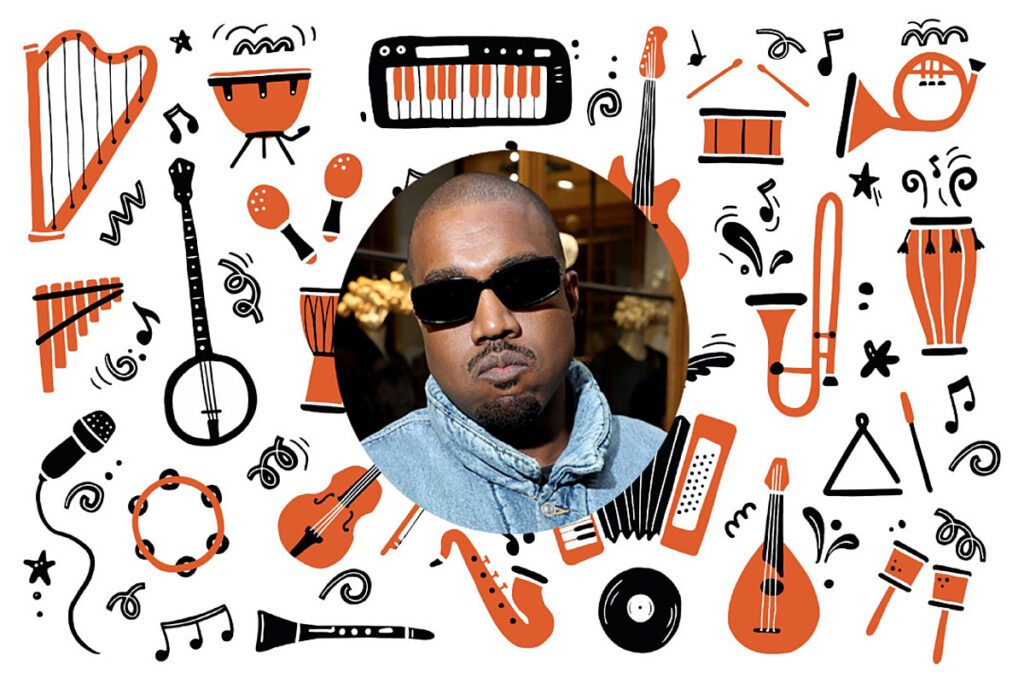Kanye West is undeniably one of the most influential musicians ever, but after claiming to have invented every style of music, even some of his rap peers have become skeptical.
Ye Claims He Invented Every Style of Music
On March 15, Ye and Ty Dolla $ign sat down for an interview with radio host Big Boy to discuss their new Vultures 1 album. At one point, Ye stated that every style of music from the last two decades was created by him.
“I done invented every style of music of the past 20 years,” Kanye boasted below. “I created Weeknd genre, [Travis Scott], Drake. I’ma go ahead and say it, with all love, Future and [Young] Thug also because the Auto-Tune album, 808s [and Heartbreak].”
The comments inevitably led to a broader conversation online about Kanye’s wide-ranging influence on music. While his impact is undeniable, a few people took issue with a braggadocious flex as big as this.
“NOT ALL GENRES NOT EVERY STYLE,” Boosie Badazz argued on X, formerly known as Twitter, on March 16. “NOT BOOSIE MUSIC.”
Additionally, Ye’s Kids See Ghost collaborator Kid Cudi cryptically pushed back at his colleague’s assertion, citing a Wikipedia entry in which Ye said Cudder inspired the sound of his 808s & Heartbreak.
Read More: Kanye West Says Ice Spice’s Team Won’t Clear Verse for “New Body”
Did Kanye West Invent Music Styles?
So the question remains: Did Kanye West invent every musical style? Online, fans began debating Ye’s influence on musical “genres”—but Ye never said genre. On a literal level, the answer is obviously, no. Kanye did not invent dubstep, Afrobeats, drill, Latin trap and any number of genres that have popped up since he stepped onto the scene 20 years ago. However, he did change rap’s relationship to commercial music as a whole.
Ye’s 2004 debut album The College Dropout shifted hip-hop production towards a choppier, more sample-based sound that would later go on to be the norm in rap. He also became known for his “Chipmunk Soul” approach of pitching everything up, a technique that would become tried-and-true for rappers like Drake, J. Cole and Chance The Rapper. One year later, on Late Registration, Ye’s experimentation with R&B and G-Funk then changed rap’s accessibility to the Billboard charts, as “Gold Digger” dominated the No. 1 spot on the Billboard Hot 100 chart for 10 consecutive weeks.
By 2007, Ye sought to close the gap between his commercial sound and “stadium status,” as he later flexed on Graduation‘s “Big Brother.” His flips of Daft Punk on “Stronger,” and enlisting certified pop stars like Coldplay’s Chris Martin on “Homecoming” closed that gap easily. The EDM underbelly of Graduation would go on to shape the sound of popular music and inspire a slew of other artists to include more electronic music in their work.
From Childish Gambino and Wale to The Weeknd, the list of inspired singers and songwriters just from those first three albums alone could go on and on. Not to mention, Ye’s beloved magnum opus My Beautiful Dark Twisted Fantasy was still a good three years away, and Yeezus’ boundary-breaking industrial rock dabblings hadn’t hit the airwaves yet.
But Ye was right in honing in on 808s & Heartbreak in his Big Boy interview, his somber auto-tuned pop album that took everyone by surprise in 2008. While auto-tune up until that point had mostly been used as a tool to create party music, a la T-Pain, Ye used the alterations in his voice to tap into his grief. It’s hard to name one rapper today who doesn’t at some point rely on auto-tune to croon to a distant lover, or reflect on their trauma.
Yes, Ye really is one of the most important musicians in human history, and his molding of popular music, (and possibly even gospel music with Jesus Is King in 2019), is undisputed. With that being said, it’s way cooler to just let history speak for itself, and it seems reductive to put all that praise on himself considering artists like Travis Scott, Daft Punk and Kid Cudi worked so closely with him to make some of his best work. Overall though, this all just makes it harder to watch Ye’s anti-Semitic and racist antics dilute his legacy.
Read More: Kanye West Sues YesJulz for $8 Million
Watch Kanye West and Ty Dolla $ign’s interview with Big Boy below.




